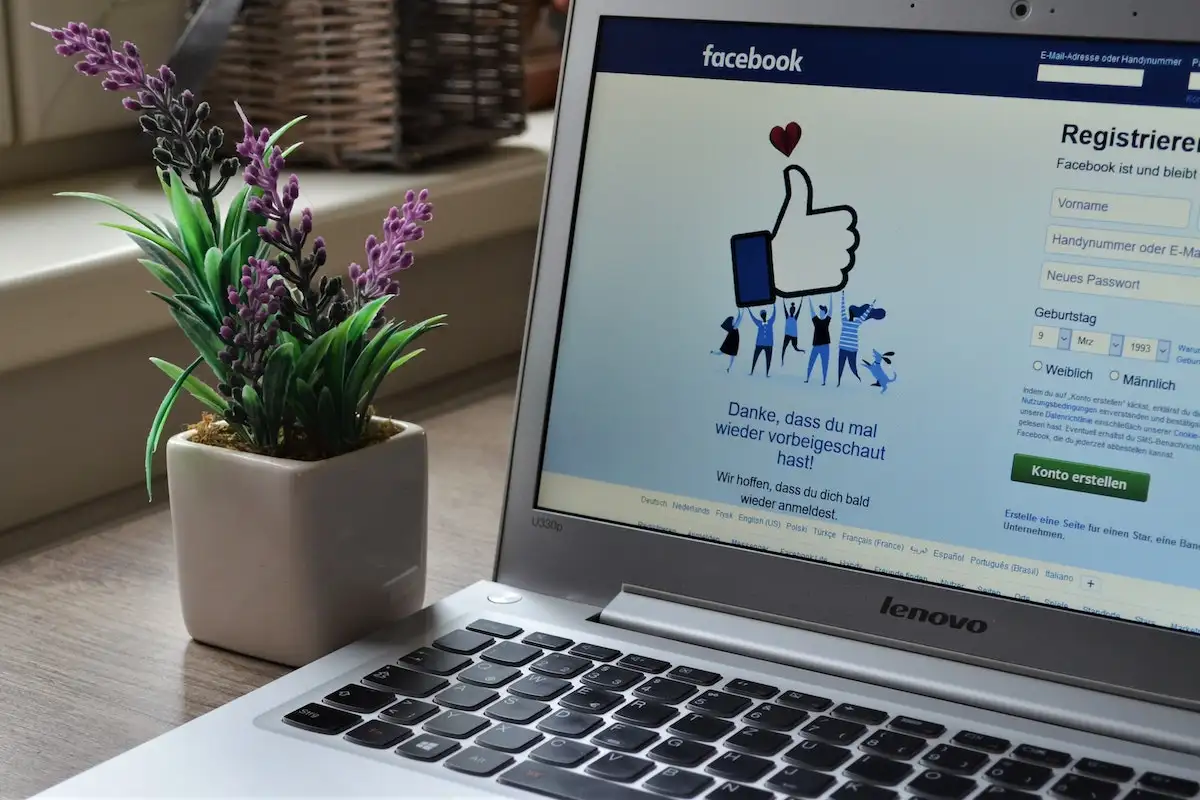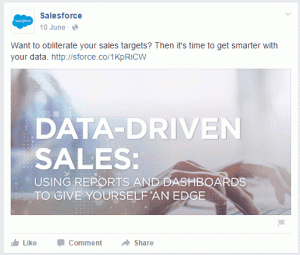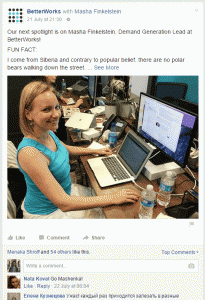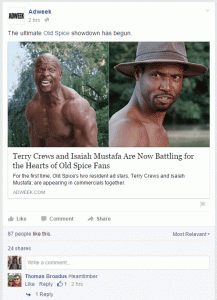Facebook had 1.49 billion monthly active users as of June 30, 2015. Over 50% of the UK’s population is on the social network, and that includes a large number of professionals. There’s no question, therefore, that Facebook does have an active audience of businessmen and women. Does that make it a lucrative channel for B2B social media marketing, though?
Within the UK, the total number of users on Facebook is 38 million, of which 25 million are between the ages of 25 and 60. This audience breaks down further into:
- 32,000 founders
- 69,000 c-level executives (CEO, CFO etc.)
- 150,000 directors
- 200,000 managers
To determine whether this audience will be receptive to marketing, we need to understand how individuals use Facebook and how the network drives usage.
Download our free whitepaper on how to generate qualified Facebook leads for your business
It’s personal
Multiple surveys have found that Facebook is used mainly to connect with friends and family and share personal updates and interesting information. Less than 10% of people surveyed use Facebook to actively identify networking opportunities.
This means that users are on there to interact with people they actually know. Any other interactions will typically be considered either secondary or as assets to share information with the people they know.
It can be professional
A study conducted by Boston University’s Ashwini Nadkarni found that people use Facebook for two primary needs: (1) the need to belong and (2) the need for self-presentation.
Both of these needs present opportunities for businesses that are smart enough to recognise them and use them subtly.
Marketers who recognise the limits and work out ways to still fulfil basic user needs can drive excellent brand recognition, customer engagement and even sales via Facebook.
A few key points must be kept in mind:
- Provide value – understand that you’re taking up time outside of work, and so your value proposition should offer more than usual
- Generate excitement – identify your audience’s interests outside of work and give them something that they will enjoy, a lot
- Keep your audience informed – share content that makes your audience smarter and they will be happy to consume it in their free time
- Don’t hard sell – except when you have a truly compelling offer or are remarketing to a hot lead
The answer is ‘yes’
B2B marketing can be successful on Facebook. The key is to always remember that while your client might be a business, you are reaching out and engaging with a person – who just happens to work for that business.
Targeting options on Facebook may not be as robust as LinkedIn, but they are good enough for most use cases. Advertisers can target professionals based on their employers, job titles and industries, in addition to the usual demographic and location targeting options.
Examining B2B success and failure on Facebook
This is a purely B2B company with a lot of followers, but almost no engagement whatsoever. Chances are, they don’t pay to promote posts and a large percentage of their audience doesn’t get shown the posts at all.
The post shown here has had absolutely no audience interaction, and that seems to be the case for most posts on the page.
Yet another example of a purely B2B company, but this one only has a little more than 1,000 followers. This company understands two crucial facts of social media – people engage with other people, and people drive business success.
Employees and their friends have Liked and commented on the post shown here. As the adage goes, Facebook engagement begins at home.
In spite of the comparatively smaller audience, the engagement rate on this page is higher, which leads to wider reach for the brand both on this post as well as in the long run.
Publishers probably have an edge over other businesses where it comes to marketing on Facebook, as they make a living promoting content. Other businesses can learn a thing or two from them.
Simple, short write-ups accompany all the posts, which are usually entertaining or informative. Even though the website aims to sell subscriptions, they understand that people will buy subscriptions if they value Adweek’s content. Hence, the content is the star.
This social strategy pays off, as posts are liked, shared and commented on regularly.
About the Author
Farhad is the Group CEO of AccuraCast. With over 20 years of experience in digital, Farhad is one of the leading technical marketing experts in the world. His specialities include digital strategy, international business, product marketing, measurement, marketing with data, technical SEO, and growth analytics.














